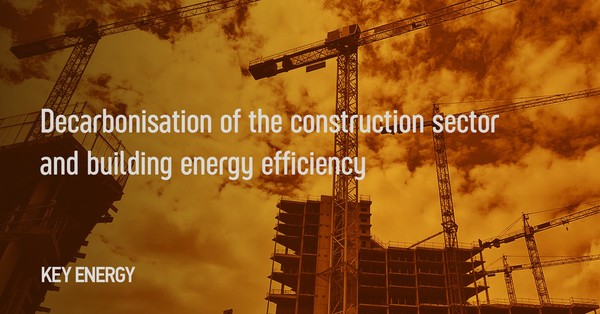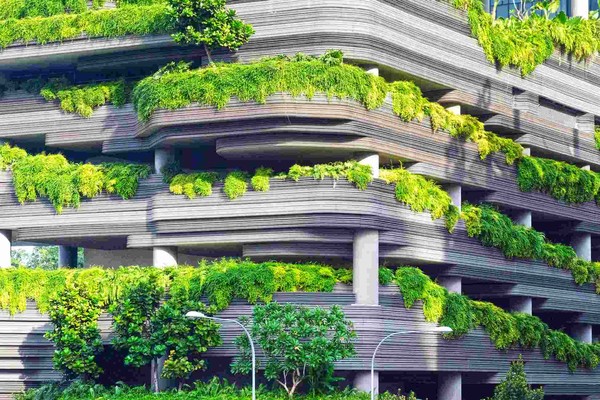Decarbonisation of the construction sector and building energy efficiency
Buildings are also part of the decarbonisation process, which now represents a key target in dealing with the climate crisis and meeting the sustainable development objectives set for the next few years.

When we talk about energy efficiency and upgrades, the building stock represents one of the main challenges that we will have to address in the next few years.
To decarbonise this sector more quickly, particular attention is being paid to building sustainability, with an important focus on energy efficiency aspects and the use of renewable energy.
In the EU, the construction sector is responsible for approximately 40% of energy consumption, 50% of extracted raw materials and 35% of total waste. All these elements significantly impact both existing ecosystems and the surrounding environment, exacerbating the global problem of climate change. Clearly then, rethinking the way in which buildings are designed and used is key.
The valuation of buildings’ life cycle
To measure the sustainability of a building, it is fundamental to consider not only its operational emissions, i.e. those related to the energy used in the operation of the building itself, but also incorporated emissions, i.e. those related to production, transport, construction and dismantling of construction.
A series of key performance indicators have been established by the Level(s) framework, a tool launched by the European Commission to measure and assess the level of sustainability of buildings throughout Europe. Through these indicators, we can monitor the various phases of a building project and consider the emissions resulting from its entire life cycle.

NZEBs – Nearly Zero Energy Buildings
NZEBs – Nearly Zero Energy Building – are "buildings with an extremely high energy performance that use renewable sources to meet their energy requirements, which in any case are very low. They follow a bioclimatic design, thanks to which the building is integrated into the surrounding environment and is able to draw on natural resources for its energy needs, as well as using home automation and advanced technologies within to monitor energy consumption".
Their energy efficiency in therefore very high, which is why the topic of NZEBs is becoming increasingly important in discussions about the decarbonisation and efficiency of the building sector.
Self-generation and collective consumption of energy
Incentivising the generation and sharing of energy from renewable sources is of fundamental importance. This can be achieved by creating energy communities and involving individual homes, apartment blocks, companies and public buildings, as promoted by the Mise decree and the EU.

